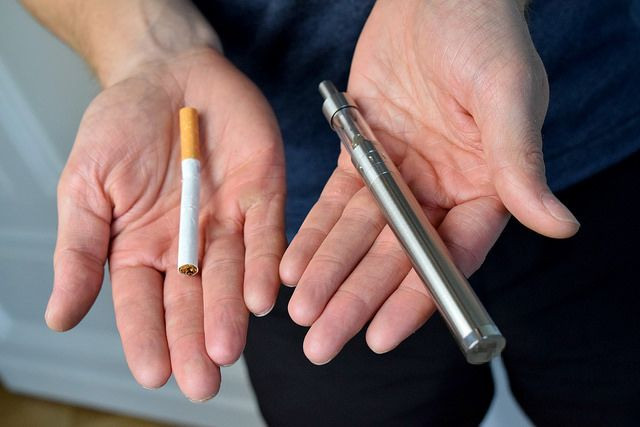E-Cigarettes’ Effect On The Immune System Could Make Them No Better Than Regular Cigarettes

Electronic cigarettes, or e-cigs, have been marketed in the United States since 2007. Many people believe vaping is not very harmful, perhaps because of the fanciful flavors — everything from cotton candy to tangerine. New research from UNC School of Medicine suggests the opposite may be true with evidence that cinnamon-flavored e-liquids not only harm epithelial cells, but also change immune responses in our airways.
In previous work, Dr. Ilona Jaspers, a professor and director of the curriculum in toxicology, demonstrated how smoking regular cigarettes impaired the immune responses of mucosal cells within the respiratory system. She wondered if vaping did similar damage.
For her current study, Jaspers and her colleagues obtained tissue samples of the epithelial layer inside the nasal cavities of smokers, non-smokers, and users of e-cigarettes. Examining the samples, the team analyzed expression of nearly 600 genes involved in immunity. The researchers also obtained nasal fluid, urine, and blood samples from the participants to study inflammation, immunity, and possible changes occurring as a result of tobacco and nicotine exposure.
“Our data indicate that cinnamaldehyde-containing e-liquids have a significant negative effect on epithelial cell physiology and barrier function,” Jaspers wrote in her presentation to the American Association for the Advancement of Science, while also noting the cinnamon-flavored liquids, when inhaled, compromise respiratory immune cell function.
Smoking Vs. Vaping
While smoking cigarettes caused suppression of several key immune genes in the nasal mucosa, the data showed e-cig vapers were even worse. Along with suppressing the same key immune genes in the nasal mucosa, e-cigarette vapers also dampened the positive actions of additional immune genes.
This possibly broad effect on the respiratory immune response system, Jaspers theorized, might have something to do with the flavoring. Though the Food and Drug Administration rates the liquid flavorings as “safe” for oral consumption, they've never been tested for inhalation.
In separate experiments using cell cultures, Jaspers' lab examined the effects of cinnamaldehyde — the chemical flavoring that makes an e-cigarette taste like cinnamon. Cinnamaldehyde e-liquids had a "significant" negative effect on epithelial cell physiology, the results showed. The chemicals hindered key immune cells, including macrophages, natural killer cells, and neutrophils.
This compromised immune function could begin a whole cascade of cellular mechanisms that ultimately lead to impaired immune responses in the lung, Jaspers says.
Going forward, she and her colleagues will experiment to understand the health effects of long-term exposure to e-cigarettes, especially cinnamon-flavored e-cigs. Because they are increasingly popular among teens and young adults — because so many people don't believe they are harmful — the question of potential needs to be answered.
Source: Jaspers I. Pulmonary Effects of Exposure to Tobacco Smoke and New Tobacco Products. AAAS annual meeting. 2016.



























